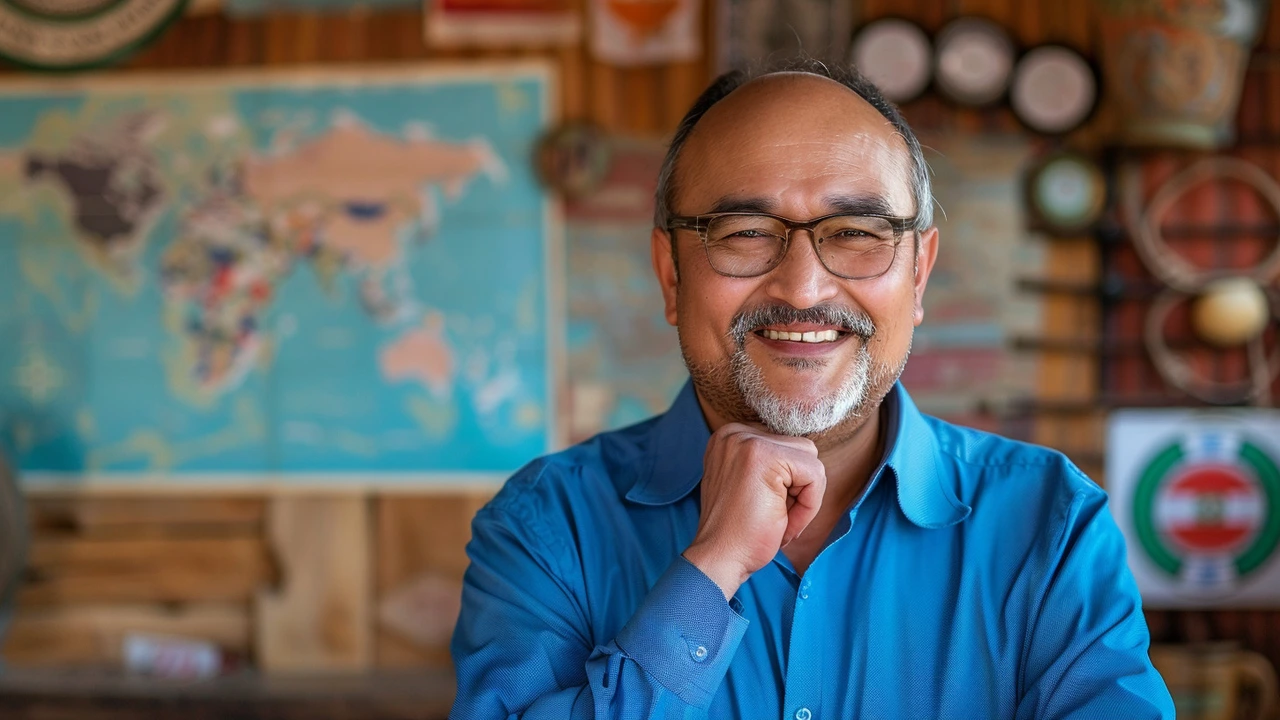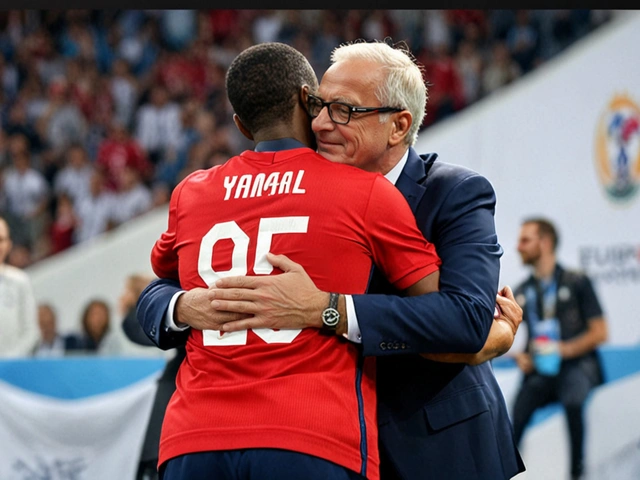Edward Kieswetter Re-elected as WCO Council Chairperson
In a remarkable achievement for South Africa and its presence on the global stage, Edward Kieswetter, the Commissioner of the South African Revenue Service (SARS), has been re-elected as the Chairperson of the World Customs Organization (WCO) Council. The re-election occurred during the 137th/138th Sessions of the WCO Council, held from 28 June to 1 July 2022 in Brussels, Belgium. This marks Kieswetter’s second consecutive term in this pivotal role, reaffirming South Africa's leadership and influence in international customs matters.
Kieswetter's re-election is a major milestone, not just for him personally but for South Africa as a whole. His continued leadership is a testament to the trust and respect he has garnered on the international stage. Being re-elected as the Chairperson of the WCO Council, the highest decision-making body of the organization, underscores the significance of his contributions and the confidence that the international community has in his vision and leadership.
Kieswetter's Vision and Achievements
During his first term, Kieswetter prioritized several critical areas that have significantly benefited the WCO and its 184-member customs administrations. His primary focus areas included customs modernization, trade facilitation, and revenue mobilization. These efforts are not only essential for the smooth and efficient functioning of customs operations but also play a vital role in international trade and economic development.
Kieswetter’s leadership saw significant strides in the modernization of customs processes, a critical need in the age of digital transformation. His efforts in promoting and supporting the adoption of advanced technologies and innovative solutions have facilitated more efficient customs procedures, reduced delays, and enhanced the overall efficacy of global trade operations. This focus on modernization also aligns with global trends and the increasing demand for digital solutions in various sectors, including customs and trade.
Another critical area that Kieswetter has championed is trade facilitation. By simplifying and streamlining customs procedures, he has made it easier for goods to move across borders efficiently and with fewer obstacles. These efforts are particularly important in supporting global trade, boosting economic growth, and ensuring that countries can maximize the benefits of international commerce.
Revenue mobilization also stood at the forefront of Kieswetter's agenda. Efficient customs operations are vital for revenue collection, which in turn supports national budgets and the delivery of public services. Kieswetter’s initiatives aimed at enhancing revenue collection methods have helped member countries bolster their financial resources, thus contributing to their overall economic stability and development.
Response to COVID-19 Pandemic
One of Kieswetter's most notable contributions during his first term was his response to the COVID-19 pandemic. Recognizing the unprecedented challenges posed by the global health crisis, he swiftly mobilized resources and coordinated efforts to ensure that essential goods continued to flow across borders. This was a critical intervention, as the efficient movement of medical supplies, food, and other necessities became more important than ever. Through these measures, Kieswetter demonstrated the crucial role that customs operations play in crisis management and humanitarian aid.
His proactive approach during the pandemic was widely regarded as a model for effective and responsive customs administration. It highlighted the importance of adaptability and resilience in handling global disruptions and underscored the pivotal role that customs administrations have in maintaining the integrity and flow of international trade.
Support from the African Region
Kieswetter’s re-election was overwhelmingly supported by the African region, reflecting a strong sense of unity and collective purpose. This support can be seen as a recognition of his commitment to addressing the unique challenges faced by African customs administrations and his efforts to advocate for initiatives that benefit the region as a whole. Under his leadership, there is a renewed sense of collaboration and shared vision for the future of customs operations in Africa.
The backing from the African region also points to the growing influence and assertiveness of African nations within international forums like the WCO. As these countries continue to develop and expand their economies, their voices in shaping global policies and standards are becoming increasingly prominent. Kieswetter’s leadership can thus be seen as both a reflection and a driver of this positive trend.
Looking Ahead: Future Priorities
As Edward Kieswetter embarks on his second term as Chairperson of the WCO Council, there are several critical challenges and opportunities that he will need to navigate. One of the key areas of focus will be continuing the push towards greater digitalization and innovation in customs operations. The adoption of emerging technologies such as blockchain, artificial intelligence, and big data analytics can revolutionize customs procedures, making them more transparent, efficient, and secure.
In addition to technological advancements, there is a growing emphasis on sustainability and environmental protection within the realm of customs operations. Kieswetter is expected to advocate for policies that support green customs practices, such as reducing carbon footprints, minimizing waste, and promoting eco-friendly trade initiatives. These efforts align with the broader global agenda on climate change and sustainable development.
Kieswetter’s second term will also likely see a continuation of efforts to enhance international cooperation and collaboration among customs administrations. By fostering strong partnerships and knowledge-sharing, he aims to address common challenges, harmonize procedures, and strengthen the global customs community. This collaborative approach is essential for tackling issues such as smuggling, fraud, and other illegal activities that undermine the integrity of international trade.
Another significant priority for Kieswetter will be capacity building and support for developing countries. Ensuring that all member states have the resources, skills, and infrastructure needed to effectively manage customs operations is crucial for the overall success of the WCO’s mission. Kieswetter’s continued focus on training, technical assistance, and resource allocation will be vital in achieving this goal.
Ultimately, Edward Kieswetter’s re-election as Chairperson of the WCO Council represents a vote of confidence in his leadership and vision for the future of global customs operations. His track record of achievements, coupled with his forward-looking agenda, positions him as a key figure in shaping the policies and standards that will define the international customs landscape for years to come. As he gears up for another term, the global customs community will be watching closely to see how his initiatives and leadership will continue to drive positive change and innovation.





